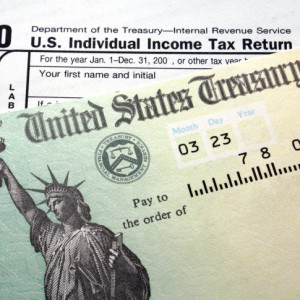Results 1 to 1 of 1
Thread Information
Users Browsing this Thread
There are currently 1 users browsing this thread. (0 members and 1 guests)
-
11-12-2013, 05:41 PM #1Senior Member


- Join Date
- May 2007
- Location
- South West Florida (Behind friendly lines but still in Occupied Territory)
- Posts
- 117,696
Government Redistributed $2 Trillion From Upper Income Classes To Poorest In 2012
Government Redistributed $2 Trillion From Upper Income Classes To Poorest In 2012
November 12, 2013 by Ben Bullard
 PHOTOS.COM
PHOTOS.COM
A new report from The Tax Foundation shows that the Federal government redistributed more than $2 trillion in income from the Nation’s highest earners in 2012 to the bottom 60 percent of income earners.
The extensive study, released Nov. 8, reveals that low-income Americans receive $5.28 in government spending for every dollar they pay in taxes, while high-income families receive $.25 for every dollar they pay. The shrinking middle class shows signs of sliding toward the lower-income bracket, with middle-class income earners receiving $1.48 back for every tax dollar they pay to the government.
The study targets the effectiveness of government schemes, taken as a whole, to shore up the needs of lower-income Americans by seizing and reallocating the wealth earned by top earners.
“While the distribution of the tax burden is a frequent topic of debate — especially in Washington, D.C. — there is little attention given to the distribution of spending programs,” the authors explain. “And rarely has there been any attempt to analyze the totality of tax and spending programs across all levels of government. This study seeks to fill this void by analyzing the distribution of both taxes and government spending at both the federal and state and local levels.”
Here are more of the report’s key findings:
- As a group, the bottom 60 percent of American families receive more back in total government spending than they pay in total taxes.
- Government tax and spending policies combine to redistribute more than $2 trillion from the top 40 percent of families to the bottom 60 percent.
- The total amount of redistribution has increased slightly over the past 12 years. Middle-income and working lower-income families were the biggest beneficiaries.
- Lawmakers can remove equity as an issue in tax reform by matching any loss in progressivity on the tax side with an equal increase in progressivity on the spending side.
As noted above, there’s an increasing tendency on the part of government to include more middle-class Americans in the entitlement culture – a tendency The Tax Foundation says is deleterious to the Nation’s economic backbone.
“Interestingly, we find that the biggest net beneficiaries of this increase in redistribution from 2000-2012 are middle-income families and working lower-income families (those in the second quintile). These were the families most targeted by economic stimulus programs and more generous tax credits,” the authors note.
“…These findings have particular relevance to the current tax reform debate because distributional issues are one of the key sticking points to reform proposals that would cut marginal tax rates while broadening the tax base. But tax progressivity is only half the picture, because progressivity can be achieved through both taxes and spending. Thus, if moving to a flatter, more economically neutral tax code reduces progressivity in the tax code, overall progressivity of the fiscal system can be maintained with slight adjustments to federal spending.”
In other words, a flat tax would be more equitable for all Americans, regardless of their income, and would negate much of the tax inequity that serves as pretense for the government to its base of financially-dependent citizens.
http://personalliberty.com/2013/11/1...orest-in-2012/Join our efforts to Secure America's Borders and End Illegal Immigration by Joining ALIPAC's E-Mail Alerts network (CLICK HERE)


 LinkBack URL
LinkBack URL About LinkBacks
About LinkBacks




 Reply With Quote
Reply With Quote


Sanctuary City of Chicago Arrests Over 1K Illegals from...
05-01-2024, 08:20 PM in illegal immigration News Stories & Reports